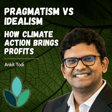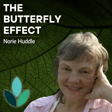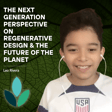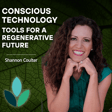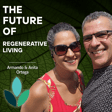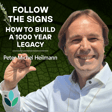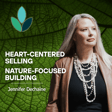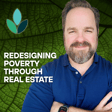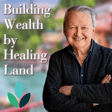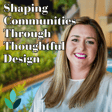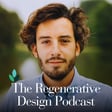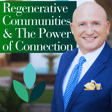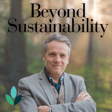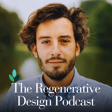
Ep. 21: Parker Condit - Regenerating Health - How Personal Wellness and Planetary Sustainability Go Hand-in-Hand
“If you think of regeneration, it’s not a new system, it’s the oldest system there is. That’s how nature works. It’s the process of healing and rebuilding, whether it’s soil, ecosystems, or even our bodies.”
Turns out, your body and the planet have a lot in common—they both thrive on regeneration and will punish you for neglect. This episode dives into the fascinating parallels between soil health and human health, revealing how a holistic approach can transform everything from your energy levels to your environmental impact. Spoiler alert: the secret isn’t just kale.
Our guest takes us on a journey from training NBA stars to founding a health coaching business that connects personal wellness with global sustainability. Along the way, he shares how rethinking health as a regenerative system—not just a bunch of quick fixes—can help you feel better, live longer, and maybe even save the planet. It’s not just about feeling good after a workout; it’s about living a life that makes the Earth want to keep you around.
Parker Condit is a health coach, personal trainer, and the founder of InTouch Health and Performance. With years of experience working with elite athletes, Parker now focuses on helping people build sustainable health habits while embracing their connection to the planet. He’s also the host of Exploring Health, Macro to Micro, where he unpacks the big and small ways we can all live better.
Learn more and connect:
1. InTouch Health and Performance (Parker Condit’s Website):
https://www.intouchhealthperformance.com
2. Exploring Health Podcast by Parker Condit:
https://exploringhealthpodcast.com
3. Exploring Health Podcast:
• Spotify: https://www.spotify.com (for Exploring Health Podcast)
• Apple Podcasts: https://www.apple.com/apple-podcasts/ (for Exploring Health Podcast)
Explore these valuable resources to further your journey in regenerative design:
Discover more about Regenerative design at Paulownia Landscape Architects. https://www.paulownia-la.com/.
Dive into the Twelve Laws of Nature and unlock the secrets of harmonizing with our planet at https://www.12lawsofnature.com/.
Fulfill your garden aspirations with expert guidance from the Garden of Your Dreams masterclass at https://www.gardenofyourdreams.com/.
Ready to take actionable steps towards your dream garden? Book a complimentary 30-minute training session with Matthieu for immediate results: https://calendly.com/garden-of-your-dreams.
